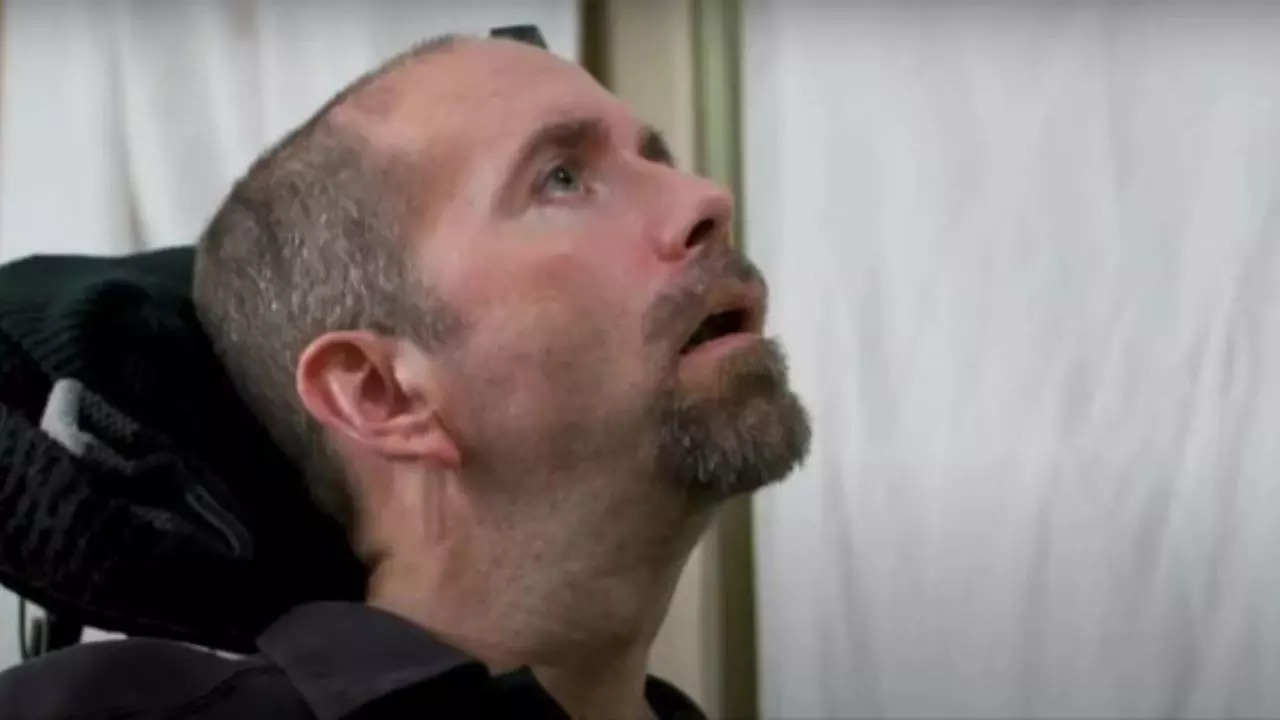Contents
A groundbreaking mind-reading device helped a man suffering from a severe neurological disorder speak again
A man suffering from a debilitating neurological disease has been able to ‘speak’ again with the help of a computer that translates brain activity into text that is read aloud. Casey Harrell, 45, who suffers from motor neuron disease caused by amyotrophic lateral sclerosis or ALS, cried with joy as he was able to communicate the language he wanted, according to a new BrainGate test developed by the University of California. Scientists say the computer achieved 97.5 per cent word accuracy.

Casey Harrell, 45, has been enrolled for the BrainGate trial – with sensors implanted in his brain
A new brain-reading computer has enabled a man suffering from motor neurone disease or MND (an uncommon condition that affects the brain and nerves) to speak again, a study has revealed. According to the researchers, this pioneering technology converts brain signals into speech with up to 97 per cent accuracy – the most accurate system of its kind.
Researchers at the University of California implanted sensors into the brain of a man who had severe speech impairment because he suffered from amyotrophic lateral sclerosis or ALS (a form of MND). He “cried with joy” when he was able to articulate the speech he wanted, they said.
Casey Harrell, a father of two children enrolled in the BrainGate trial – who have sensors implanted in their brains – said: “Not being able to communicate is very frustrating and discouraging. It feels like you’re trapped – often isolated and alone. Technology like this will help people get back into life and society.”
Heartwarming footage has been released showing the 45-year-old using the device for the first time with his family.
The most accurate speech device ever
“Our brain-computer interface (BCI) technology helped a paralysed person communicate with friends, family and carers,” Dr David Brandman, a neurosurgeon at the University of California Davis Health and co-senior author of the study, told the Independent .
“Our paper demonstrates the most accurate speech neuroprosthesis technology to date. This technology is transformative as it offers hope for people who want to speak but cannot,” he said.
“I hope that technology like this speech BCI will help future patients talk to their family and friends.”
How does this technology work?
When a person attempts to speak, the new device built into the BrainGate clinical trial converts his or her brain activity into text on a computer screen, which the computer can read aloud.
Scientists say that Harrell had weak arms and legs and his speech was very difficult to understand and therefore, he needed help from others. In July 2023, sensors were implanted in the area of Harrell’s brain that was responsible for coordinating speech.
“We’re actually detecting their muscle movements and their attempts to talk,” said Sergei Stavisky, assistant professor in the Department of Neurological Surgery.
Harrell, who was diagnosed with ALS in 2020, used the system in both induced and spontaneous conversational situations, and speech decoding occurred in real time. The decoded words were displayed on the screen and read aloud in a voice that resembled Harrell’s voice before he was diagnosed with ALS.
This voice was created using software trained with existing audio samples of his pre-ALS voice.
With just an additional 1.4 hours of training data, the BCI achieved 90.2 percent word accuracy with this highly expanded vocabulary, and after continued data collection, the BCI has maintained 97.5 percent accuracy.
Get the latest news on Times Now along with the latest updates and top headlines from health and around the world.


